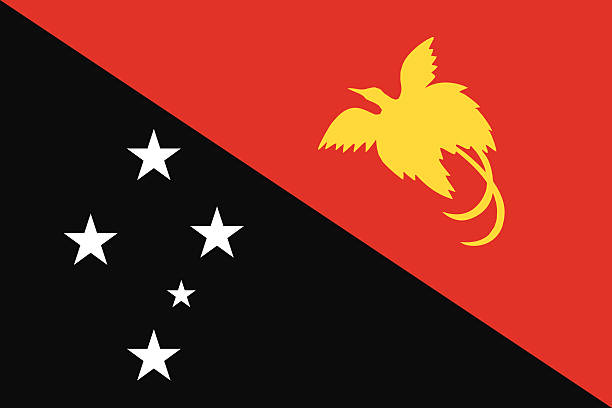Saturday 26th August
The National Cyber Security Centre (NCSC) continues to work towards upskilling local Papua New Guineans become better at identifying cyber threats and risks in the digital space.
The NCSC jointly funded by the Australian and PNG governments has enabled the country to benefit from such advanced communications technology through this important partnership.
According to Diane Barclay, Minister–Counsellor, Australian High Commission, “Australia understands the importance and challenges of building up cyber security and resilience across the region”.
Ms Barclay made these remarks at a NCSC graduation ceremony held at Apec Haus in Port Moresby, early this month, where seventy (70) participants from various government departments, agencies and state owned enterprises successfully completed a 17 -week online training on cyber security.
Ms Barclay told the gathering that increasingly, digitization and connectivity are central to the economic developmental objectives of many nations including PNG.
“Cyber space, the internet and digital technologies underpin the global economy and provide unprecedented opportunities for sustainable and inclusive development.
“But equally, malicious cyber activities affect all countries; small, medium and large, and the scale, scope and severity of malicious cyber incidents are increasing and at the most severe these incidents have the potential to threaten international peace and stability,” she said.
Through a renewed Memorandum of Understanding (MoU) on cyber cooperation, Australia continue to partner with PNG under the “Cyber and Critical Tech Cooperation Program”.
Ms Barclay stated that the Australian government is on track to deliver one hundred (100) cyber and critical tech cooperation programs in the Indo-Pacific at the value of $81million
Aust dollars.
“Our initiatives focus on building capacity and resilience across a range of cyber and critical technology issues through domestic capability in partnership with regional leaders”.
Ms Barclay in congratulating the 70 graduates said the cyber training program they have just undertaken is one such example of the different courses provided through the cooperation.
“Australia is proud to partner with PNG under the ‘Cyber and Critical Tech Cooperation Program’, to deepen our cyber cooperation, maximise the benefits and address the threats.
“We are pleased to support PNG’s domestic capability through the delivery of accredited training, mentoring and incident response cyber security operations and network management.
The support and training provided through our digital skills industry partner; With You With Me (an IT training company) to PNG’s National Cybersecurity Centre is a great example of working together to build PNG’s cyber capability.
The Cyber Cooperation Program training partners help train cyber security specialists and digital transformation officer (DTOs’) who can then train their counterparts and help address the local cyber security skills gap.
A robust cyber security is a fundamental element of growth and prosperity in the global digital economy.
Mr Russel Woruba Deputy Secretary, Digital Government Wing, with the Department of Information and Communications Technology, said PNG has come a long way, especially in the ICT sector, and the government understands the importance of safe guarding the country’s critical key digital infrastructures from cyber threats.
Mr Woruba oversees the National Cyber Security Centre, and acknowledged and thanked Australia for their enduring support in ensuring to work together to build cyber resilience PNG and across the broader pacific as well.
“At the end of the day, we can invest in a lot of things in digitialization, but if we cannot
protect this investments, if do not have people who are skilled enough to help the country withstand this sort of threats and attacks, we will have a big problem.
“We need to train all of us to get to a level of maturity so that our Index as a country increases so we can withstand and provide support to one another in this space and the Australian Government has taken this very seriously,” Mr Woruba said.
The NCSC’s 17 weeks Cyber Security Training requires participants to register and do the courses online.
Participants are required to complete the training over a period of 17-week, the advanced courses need this entire time to complete the program whereas the entry level courses do not take too much time to complete.
NCSC encourage interested people to take on new courses if they finish with time still left in the cohort period.
It is online and self-paced and recommends 2 hours/ per week to do the online training, however, some people have more time to commit to the training meaning they will complete the training faster.
There are different pathways people can enrol in but for the NCSC run training programs, it mainly focuses on cyber security: these include:
Cyber Security Generalist – Covers cyber awareness topics and teaches participants to protect their data, be aware of phishing and other cyber threats and how to avoid dangerous situations
Cyber Fundamentals – Covers the technical fundamentals required to work as a cyber security analyst, including Networking Fundamentals and Linux Fundamentals
Cyber Security Analyst – Provides students an understanding of how to implement technical requirements for the defensive and offensive protection of their computer network. Topics include; Introduction to Cyber Security and Overview, The SOC and Tier 1 Analyst, Operating System Security, and Analysing Advanced Threats Incident Response.
After completing the cyber security program, participants are expected to be technical
leaders within their respective organizations and they will have the skills to identify cyber threats and risks and can support their DTOs by spreading knowledge among their peers.
For the 70 participants who completed some courses but did not complete their entire pathway received a certificate indicating what they have completed while those participants who completed entire pathways received a completion certificate and a challenge coin donated by the Australian Department of Foreign Affairs.

